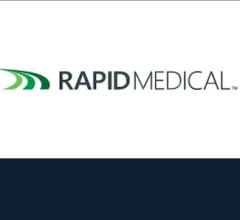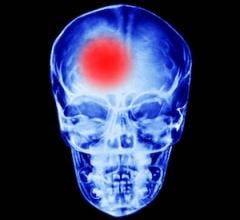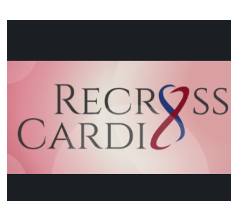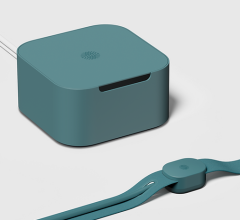October 13, 2014 -- A study using a new imaging tool, optical coherence tomography (OCT), offered a new look at the composition of carotid artery disease and has the potential to alter how physicians understand and treat the disease, a leading cause of stroke.
The study, conducted at Baptist Health Lexington between September 2010 and May 2012, was featured in the June 2014 issue of the Journal of the American College of Cardiology (JACC) Cardiovascular Interventions. Interventional cardiologist Michael R. Jones, M.D., served as a principal investigator of the study, which also included neurosurgeons William H. Brooks, M.D., and Christian N. Ramsey, M.D., neurointerventional radiologist Curtis A. Given II, M.D., along with physicians from Case Western Reserve University in Cleveland, Ohio and Pitangueiras Hospital in Jundiai, Brazil.
The study involved a retrospective review of 53 patients suspected of having carotid artery stenosis, a narrowing caused by the build-up of plaque. The patients – both symptomatic and asymptomatic for stroke – underwent diagnostic carotid angiography as well as OCT.
"Because OCT offers such high resolution images, we were able to identify some plaque as 'vulnerable' or 'unstable,'" explained Jones.
Physicians have suspected that unstable plaque is at risk for rupture. The body treats a rupture in a blood vessel as a wound and forms a blood clot to stop the bleeding. This clot can then dislodge from the plaque and travel to the brain causing a stroke. Less commonly, the plaque itself can break off and travel to the brain.
The study revealed that symptomatic patients had a larger percentage of unstable plaque but actually less blockage when compared to the plaque found in vessels of asymptomatic patients.
It has long been thought that opening carotid arteries severely narrowed by plaque – either with surgery or a stent – is one of the most effective ways to prevent stroke. The OCT study revealed that severity of the narrowing was not as much of a predictor of stroke as the composition of the plaque itself.
"This study, along with others sure to come, could change the way we test patients with carotid artery disease," Jones said. "It could be that they might be better served with looking at the type of plaque they have rather than by measuring the severity of their blockage."
For more information visit: www.baptisthealthlexington.com


 February 10, 2026
February 10, 2026 









